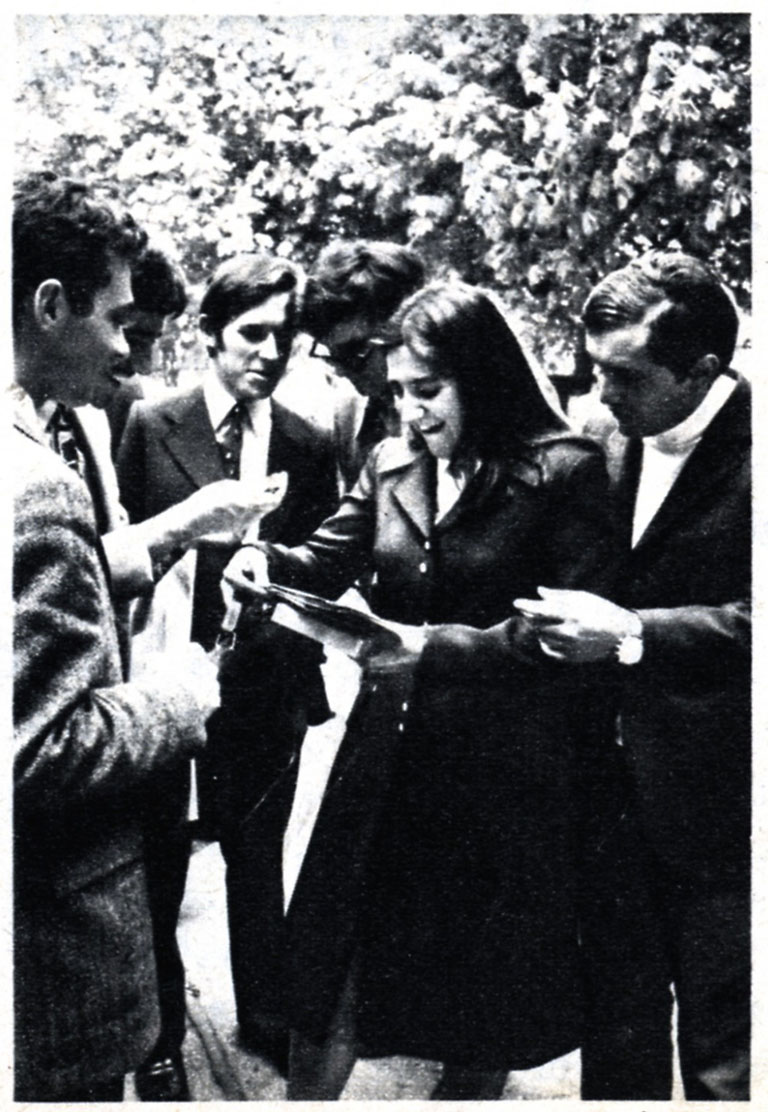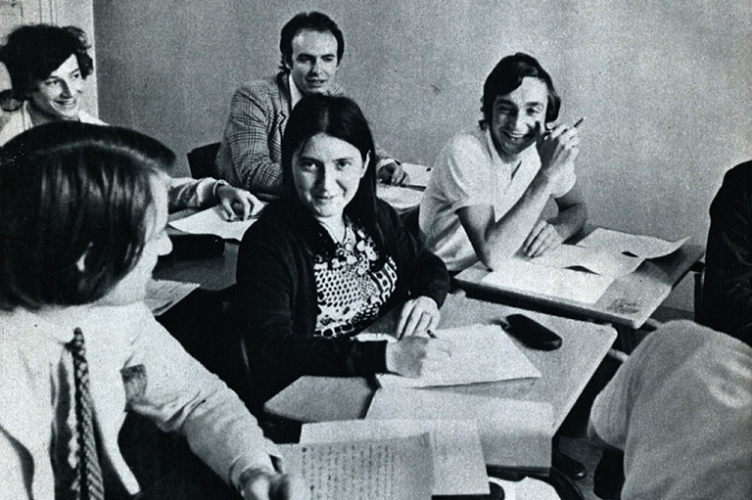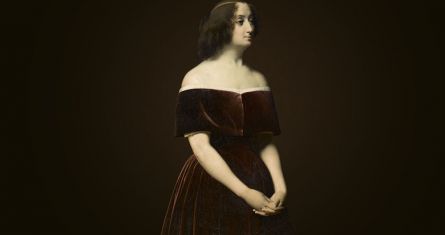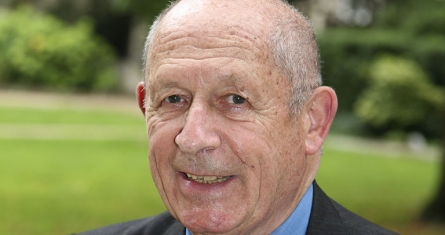We are starting a new column that will revisit a certain year in the history of the school.
Joëlle Le Vourc’h: the first ever female student joined the school
Her motivation to become the first female student of the school
Although at that time the preparatory classes to enter Grandes Ecoles were not open to women, female students were not forbidden from attending the examination for direct entry into the first year, which is what Joëlle Le Vourc’h (1973) did after studying at the faculty of pharmacy in Paris. Her goal was to work in the pharmaceutical industry, but she had been advised to earn a management degree as well, if she wanted to stand a chance against her male counterparts.
That year (1970), four candidates passed the competitive exam, but she alone decided to break with a 150-year-old tradition.
The students were reactionary.
Some students actually complained about the presence of a woman in the school, accusing her of “having taken the place of a man” (sic) in the exam, and some even expressed fears that her attendance would damage the ranking of the school, since HEC was not mixed, and might even lower the standard of the school.
However, while some professors were hostile to the presence of a female student and reserved the most complicated questions for Joëlle, the majority welcomed this new diversity.
“The first few months were so hard for me that I almost quit. Looking back, no one was prepared for this – on either side.”
Better than many boys
Deflecting difficulties, sharing bathrooms with the female administrative staff, lobbying various officials to solve problems as and when they cropped up… In this way, Joëlle got acquainted with the organisation of the school far better than many boys.
An incongruous situation
Another problematic situation for her was having to discuss with or be part of the same study group more than once. In those instances, if she was paired with the same classmate several times, he would be deemed to be “Joëlle's boyfriend.”

“I had to adapt and make sure I was always in groups of two or three to avoid this kind of problem. In a way, this situation taught me to shape myself and prepare myself for the future.” 1
The following year
The following year saw a few more young women join the school, but it was only in 1973 (when Joëlle left the school) that the administrative barriers of the preparatory classes were broken down, and women were allowed to attend the entrance exam for all the Grandes Ecoles (Polytechnique, HEC, ESCP...). Women had finally taken their rightful place in the school, although it was not until the 1980s that they achieved parity in terms of student numbers.
In the Grande Ecoles
This arrival of female students in the Grande Ecoles led to the disappearance of HECJF and, through an unexpected ripple effect, the creation of the EAP.
But that, as Rudyard Kipling said, is another story.
Now in video
1 Joëlle Le Vourc'h has had a career in auditing and consulting and has been financial reporting manager for the World Bank. She is now emeritus professor at the school.



